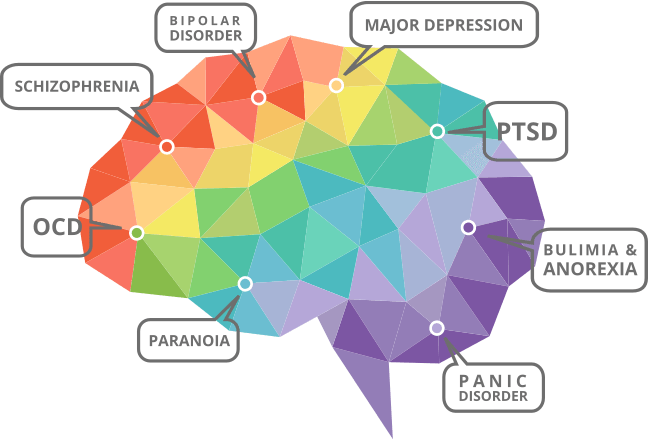Events occurring in the brain when we are in love have similarities with mental illness

Events occurring in the brain when we are in love have similarities with mental illness.

Love is a complex emotion that has fascinated humans for centuries. It can make us feel on top of the world, but it can also bring about a rollercoaster of emotions and behaviors that sometimes resemble symptoms of mental illness. Recent research shows that there are similarities in the brain activities of individuals in love and those experiencing mental disorders.
When we are in love, our brains go through a series of chemical and physiological changes that affect our thoughts, emotions, and behaviors. These changes are driven by hormones, such as oxytocin and dopamine, which play crucial roles in our social interactions and feelings of pleasure. Interestingly, these same hormones have been found to be dysregulated in several mental illnesses.
Research has shown that the regions of the brain responsible for romantic love, such as the ventral tegmental area and the nucleus accumbens, overlap with the brain regions affected in mental disorders. These brain regions are associated with reward, motivation, and addiction, which explains why love can sometimes be described as an addiction. It also sheds light on why individuals in love may exhibit obsessive thoughts, possessiveness, and withdrawal symptoms similar to those seen in mental illnesses like anxiety disorders or substance abuse.

Moreover, studies have found similarities in brain activity between people in love and individuals with mental health conditions like obsessive-compulsive disorder (OCD) or bipolar disorder. For example, both individuals in love and those with OCD show heightened activity in the caudate nucleus, a brain area involved in repetitive behaviors and compulsions. This similarity suggests that the intense focus and repetitive thoughts experienced in love may share common neural mechanisms with certain mental health conditions.
It is worth noting that these similarities do not equate to individuals in love having a mental illness. Love is a natural and normal human experience. However, understanding the overlapping brain processes sheds light on the complex and intricate nature of love and mental health.
In conclusion, events occurring in the brain when we are in love can exhibit similarities with mental illness. The chemical and physiological changes that take place in the brain during love share commonality with the brain activities observed in mental disorders. By unraveling the parallelisms between love and mental health, researchers have advanced our understanding of the intricate workings of both. Love remains a remarkable and beautiful emotion, but like many aspects of life, it is not without its complexities.
Tags
Share
Related Posts
Quick Links
Legal Stuff

